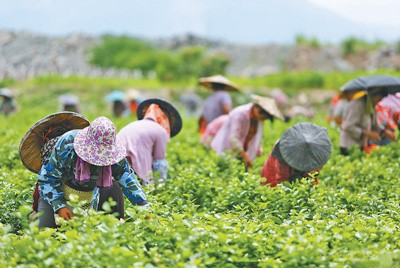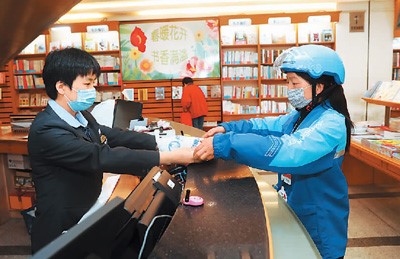(Xinhua)15:19, August 07, 2020
U.S. President Donald Trumps announcement to re-impose a 10-percent tariff on certain Canadian aluminum imports has sparked backlash at home and abroad, and reignited trade tensions with its major trading partner.
The 10-percent tariff, which will affect non-alloyed unwrought aluminum articles, takes effect on Aug. 16, according to a newly released presidential proclamation.
During a campaign speech at a factory in Ohio Thursday afternoon, Trump accused Canada of taking advantage of the United States and flooding the country with aluminum exports and killing U.S. aluminum jobs.
The U.S. aluminum business has been decimated by Canada, Trump said, adding the new tariff is absolutely necessary.
U.S. Trade Representative Robert Lighthizer said in a statement on the presidential proclamation that following removal of the Section 232 tariffs on imports from Canada in May of last year, imports of non-alloyed unwrought aluminum have increased substantially to a level above historical volumes of trade over a prolonged period.
In response, Canadian Prime Minister Justin Trudeau said Thursday evening that Canada will impose countermeasures that will include dollar-for-dollar retaliatory tariffs.
We will always stand up for our aluminum workers. We did so in 2018 and we will stand up for them again now, Trudeau said.
According to the U.S. presidential proclamation, Canada is the largest source of U.S. imports of non-alloyed unwrought aluminum, accounting for nearly two-thirds of total imports from all countries in 2019 and approximately 75 percent in the first five months of 2020.
In 2017, Canadian aluminum sales to the United States reportedly totaled 8.4 billion U.S. dollars, accounting for 80 percent of Canadas total exports of the metal.
In 2018, amid strong opposition, the Trump administration unilaterally imposed a 25-percent tariff on steel imports and a 10-percent tariff on aluminum imports globally, citing national security concerns.
In May 2019, Trump removed the tariffs on Canada and Mexico, in order to pave the way for congressional approval of the U.S.-Mexico-Canada Agreement, a new trade deal which entered into force on July 1 this year.
The U.S. presidents decision to slap tariffs on Canadian aluminum was immediately refuted by Canadas Deputy Prime Minister Chrystia Freeland, who said citing national security concerns to impose tariffs on certain Canadian aluminum products is unwarranted and unacceptable.
In the time of a global pandemic and an economic crisis, the last thing Canadian and American workers need is new tariffs that will raise costs for manufacturers and consumers, impede the free flow of trade, and hurt provincial and state economies, Freeland said in a statement.
In response to the American tariffs, Canada intends to swiftly impose dollar-for-dollar countermeasures, Freeland said.
The decision to impose new tariffs has also prompted backlash from industry groups, including the U.S. Chamber of Commerce, which immediately voiced opposition.
These tariffs will raise costs for American manufacturers, are opposed by most U.S. aluminum producers, and will draw retaliation against U.S. exports — just as they did before, Myron Brilliant, the U.S. Chamber of Commerces executive vice president and head of international affairs, said in a statement.
We urge the administration to reconsider this move, Brilliant said, calling it a step in the wrong direction.
U.S. Aluminum Association also called the decision the wrong approach, saying the industry is incredibly disappointed that the administration failed to listen to the vast majority of domestic aluminum companies and users by reinstating Section 232 tariffs on Canadian aluminum.
After years of complex negotiations and hard work by government, industry and other leaders across North America to make the U.S.-Mexico-Canada Agreement (USMCA) a reality, this ill-advised action on a key trading partner undermines the deals benefits at a time when U.S. businesses and consumers can least afford it, Tom Dobbins, president and CEO of the association, said in a statement.
The association added that reports of a surge of primary aluminum imports from Canada are grossly exaggerated.
Five weeks into #USMCA with tariffs coming against #Canadian aluminum imports. So much for any honeymoon period, Wendy Cutler, vice president of the Asia Society Policy Institute and a former U.S. trade negotiator, said on Twitter.
Weve learned tariffs beget tariffs. Seatbelts fastened. Here we go again!! she said.
The new U.S. tariffs will destabilize Canadas industry and supply chains in an economy already struggling amid the COVID-19 pandemic, said President of the Aluminum Association of Canada Jean Simard.
Its the wrong thing for the wrong reason at the wrong time for the wrong people, Simard said.
![]()


